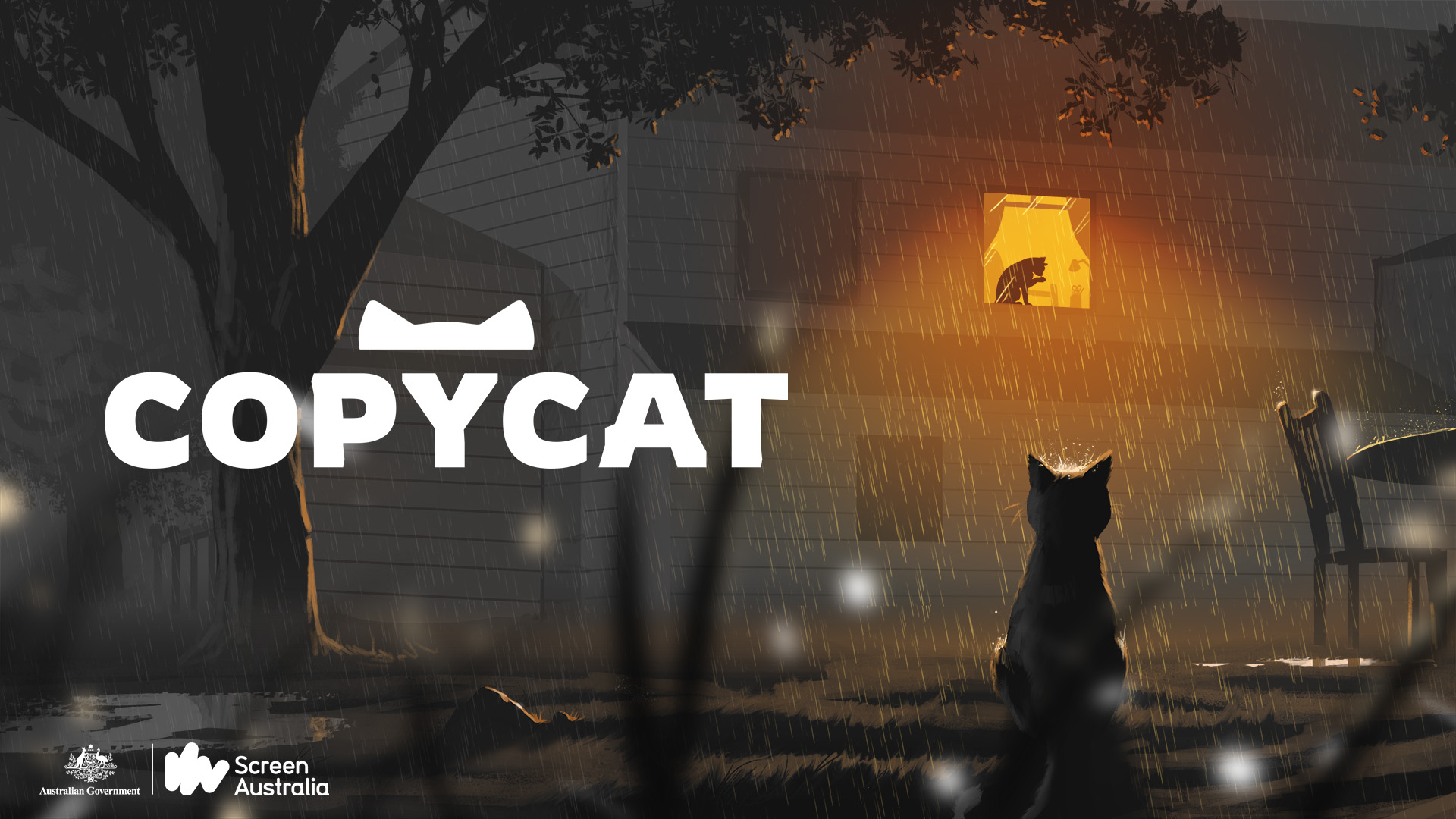What does the word “home” mean to you?
A straightforward enough question, but one which will run the gauntlet of different responses for so many people. The concept of home is the core conceit through which Copycat explores the nature of both pet and owner. We’ve been blessed with some great entries into the animal-led video game space with the likes of Stray and Farewell North. Given that the scope for indie games has been ever-expanding, the small team at Spoonful of Wonder has now tried their hand at the genre with a tightly focused narrative experience.
For most, the basic idea of taking on the role of the four-legged creatures that love to knock our mugs from our desks and ignore any request for respect will be reason enough to play Copycat. For those looking for something more deep or meaningful than a waddle through an Australian suburb though, does Copycat have enough sharpness in its claws to leave its mark on both your face, and your heart?
G’day Copymates
Set in the sunny suburbs of the Australian nation, Copycat begins with our beloved kitty – Dawn – being carefully selected by Olive. As the player, you’ll select from one of the varieties of shelter cats before you’re whisked away to start your new life. A lovely introduction, one that will feel familiar to those who have adopted their own pet in particular. Choosing your own Dawn is a nice touch, so naturally I chose the one that most reminded me of my own cat I recently gave back after taking care of them for a few months.
The structure of the story follows two main threads – the idea of home and the sense of belonging. As Dawn, we experience the nervous tension of learning to trust and overcome one’s desire to resist vulnerability. Through Olive, we see the fear of losing our independence and being forced into an identity we can’t yet accept. Olive is elderly, suffering from her own health and has to fight back against the perceived slights from her daughter, who just wants to do what’s best for her. It’s an uncomplicated story, but its simplicity allows it to hone down and delve into its main ideas.
As the in-game days tick by, you’ll engage in a variety of activities as your mischievous feline avatar. But things take a turn, largely for the worse. Copycat isn’t content with being a sunny-spot-napping simulator, there are emotive moments it lines up to strike. I don’t want to spoil anything beyond the starting narrative, because I feel that undercuts the earnestness through which it delivers its poignant messages.
I will say, however, that there is one moment where the game becomes *dark*. Given that the rest of the game is a balanced tightrope of fun and meaningful, this one moment stands out as being almost completely out of place. Sure, there’s some build up to it, but I couldn’t help but feel it was a bit heavy handed. Thankfully, it’s the only occasion I feel the story overstepped its own established boundaries, which makes it more of an odd anomaly than a story-shattering problem. Otherwise, Copycat’s narrative is heartfelt and genuine, and I commend it a great deal for that.
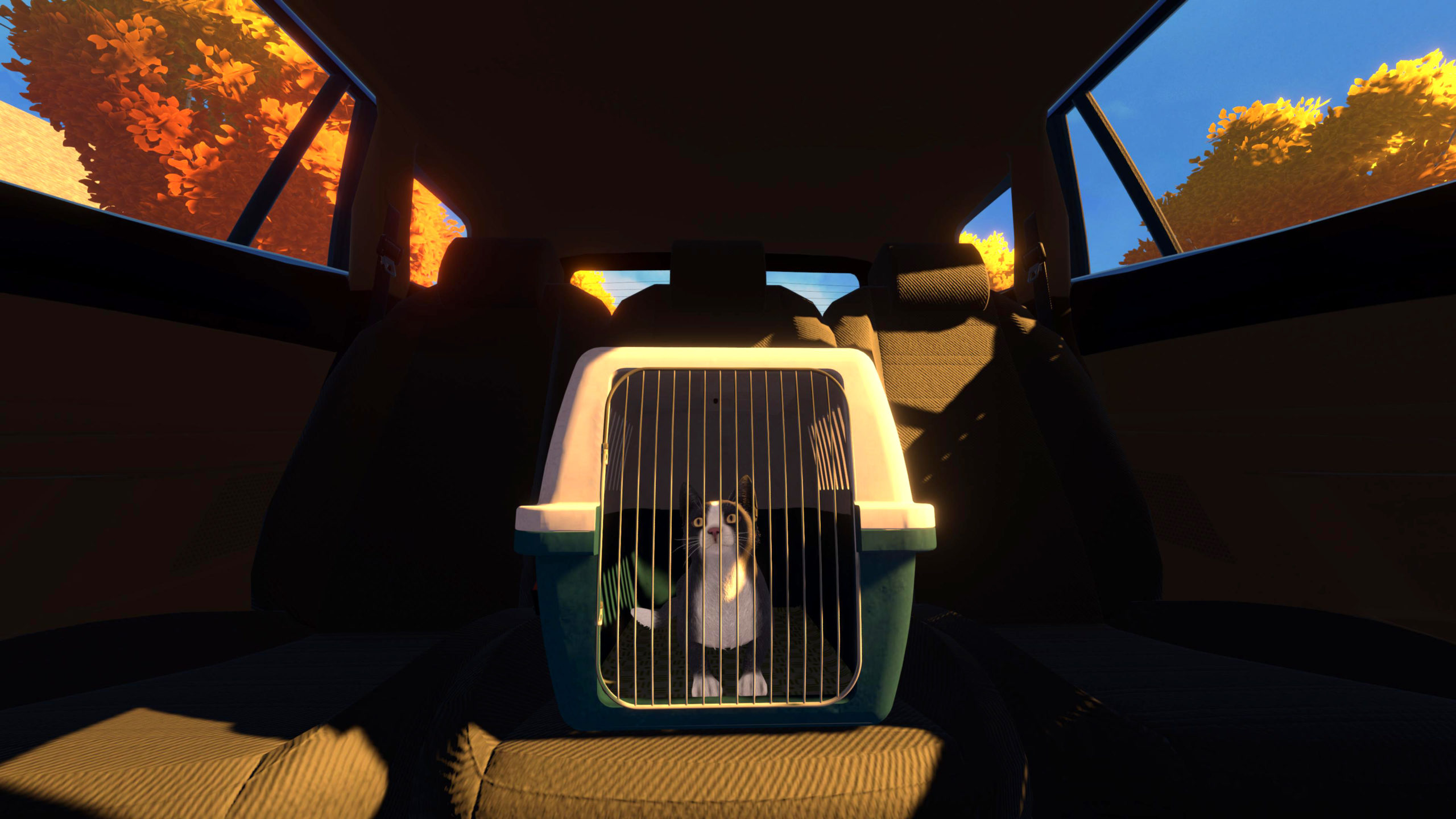
Claw-fully Cute
Dawn swiftly became right at home in her new surroundings, and so did I. The control scheme is intuitive and easy to grasp, so make sure to use a controller as the devs suggest. While Copycat doesn’t have the budget or size of the team that worked on Stray, Dawn handles exactly as you’d expect a cat to. She doesn’t always make the leaps to tables as gracefully as her real-life counterparts (though even that’s debatable sometimes), but her sprinting and idling animations are spot on.
The roughly three hour story is broken up into small self-contained levels, filled with bits of text revealing Dawn’s thoughts and emotions, as well as minigames. Tearing up toilet roll, stealing food, sneaking past a bullish German Shepard, hunting butterflies. Name something your cat has done and Dawn will most likely have you doing it, too. Each minigame is relatively short, comprised of a couple of quick time event presses or hitting the directional buttons to catch fish or fight off a stray opponent cat.
Again, Copycat is homely both in theme and gameplay. None of these activities are ever truly taxing. This isn’t a cat doing zoomies up the stairs at 4 am. Rather, Dawn is a Sunday afternoon companion that prefers her pace slower and lazier, in a good way. You can take your time roaming environments like the house, garden, park or neighbourhood, meowing at the neighbour’s doors or checking out the trash cans. Almost all of the Achievements are tied to fun little interactive moments, like headbutting each type of ball or nailing a “hunting” minigame.
Is there a whole lot of replayability? Probably not. For me, Copycat feels like a once-in-a-moment type of game. You sit down for an afternoon, terrorise the cul-de-sac with your claws and bites, then head off for a nap afterwards, content with your time spent. Between levels, you’ll complete dream sequences which have some very simplistic platforming or running around to do, but they’re more thematic than gameplay orientated. Copycat is filled with fleeting and short moments of joy, but they likely won’t have the depth to bring you back for another run about the place.
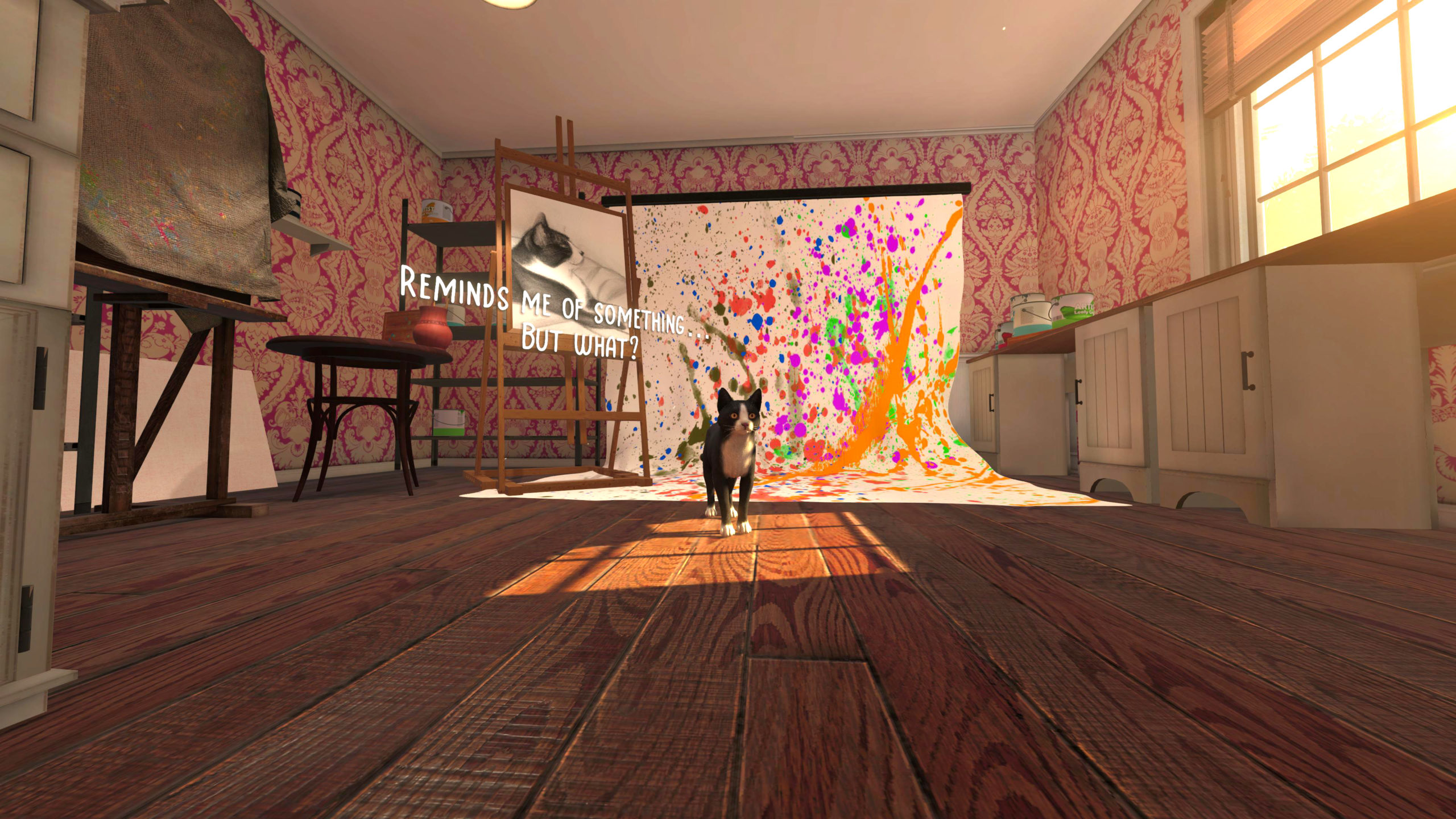
Dawn’s Furry Disposition
Knocking over milk to drink or emptying the cupboards in search of the delights of salmon were the more light-hearted parts of Copycat, and they’re pleasant for the runtime the game is going for. Of course, in its darker moments, Dawn will face some adversity – battling off rogue felines, completing a Temple Run-esque escape sequence and the like. Chances are, most people, like myself, will get more of a kick from jumping up on all the counters and batting the glasses off. Never gets old.
Olive’s neighbourhood is wonderfully brought to life thanks to some great lighting work and environmental texturing. This is by no means a high-end production, which is shown more in the character models and facial animations when things are up close. However, the glow of the sunlight illuminating the garden fills the screen with warmth. The flutter of the colourful butterflies Dawn hunts hue with vibrant contrast. Even Dawn herself will idle with all manner of cat-isms any pet owner will instantly recognise.
When the night descends and things take a turn for the more despondent, Copycat will intensify the deep blues and enhance the shadows to mimic the atmosphere successfully. The lack of raw pixels may affect some, but for me that paled in comparison to the hearty warmth of the lighting and the bleakness of the night that’s captured so well in its visual direction. Musically, Copycat matches the moods with an accompanying score that’s both tranquil and melancholic. As mentioned before, the game will sink its claws into some deeper ground, and the matching sound will perk up even the most uninterested cat.
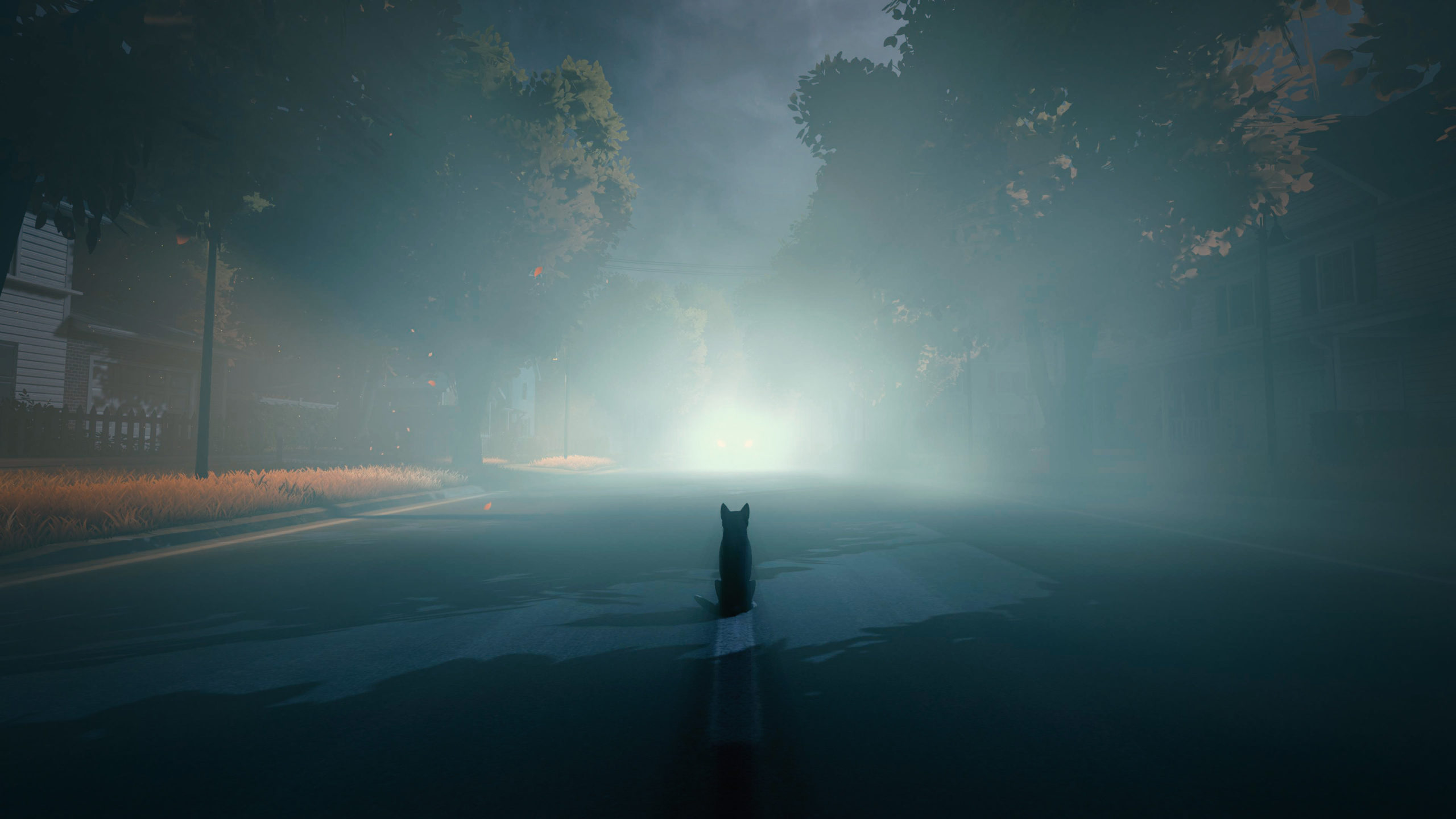
Till The Break of Dawn
Copycat is a short-and-sweet venture into the life of both cat and human. It was nice to be on the other side of nicking a steak from my human overlord and I revelled in the silly disobedience of being the four-legged ruler of the house. Equally, I mostly felt the hits of its emotional threads, the pulling of empathy for both the animal and human sides of the story. Despite not having the most mechanical depth and over-tuning with its darkest moments, Dawn and Olive’s venture is a meaningful one.
If you liked the concept of Stray but wanted a more grounded world through which to live out your feline fantasies of being a nuisance, this’ll be the Dreamies treat you’ve desired. Copycat forgoes the more intensive aspects of Stray’s design and instead keeps to its refined principles of the meaning of home and the ever-important bonds between people and their most treasured companions. In the context of it being developed by such a small team, it’s a real triumph of a passion project. A slice of life insight into Australian life and a personal reflection on the nature of change, belonging and the essential foundation of home.
After all, home isn’t where the house is, it’s where we’re needed most.
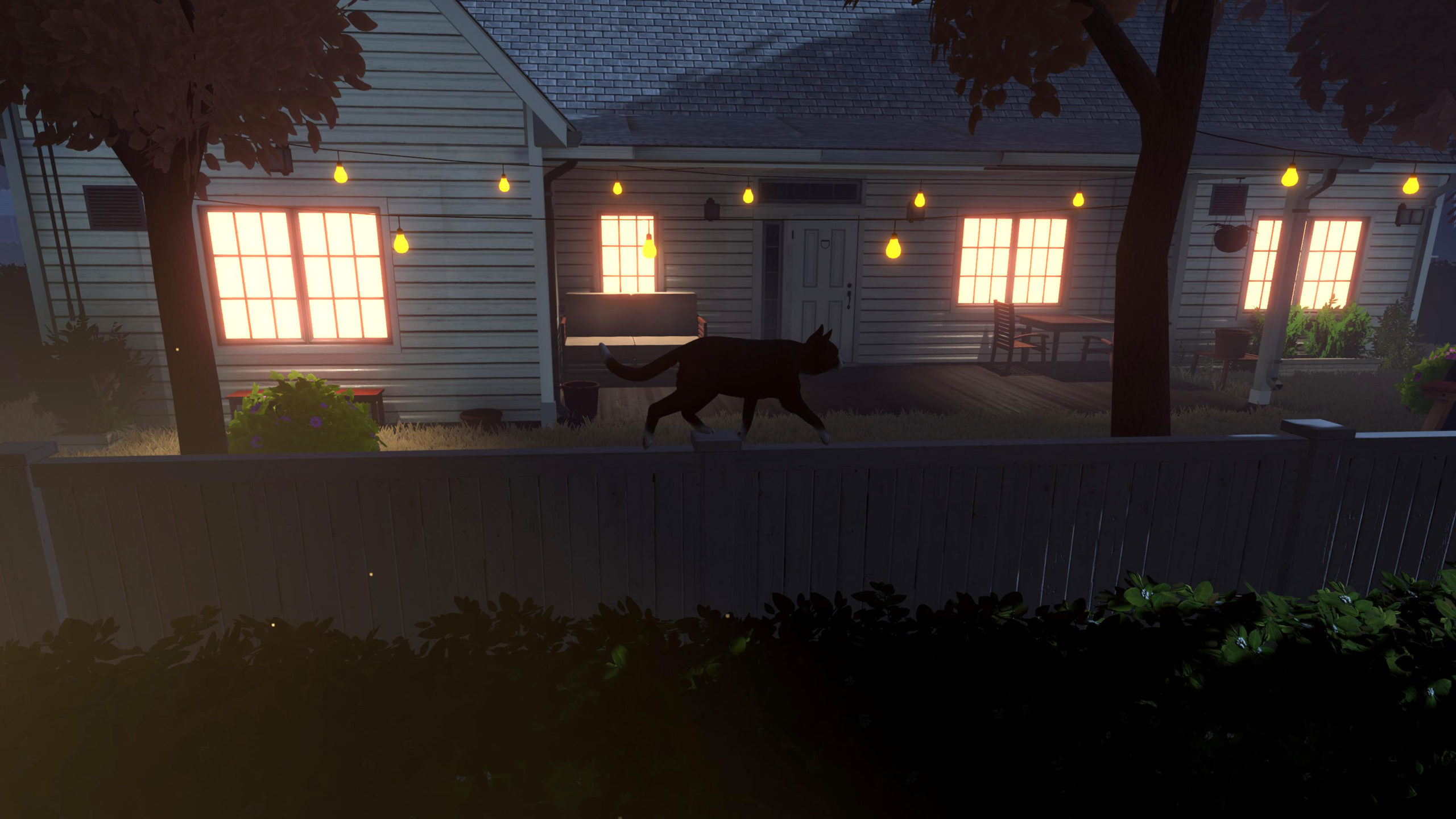
Copycat is available September 19th on PC via Steam (review platform). A console version is planned for release in future for PlayStation, Xbox and Nintendo Switch.
Developer: Spoonful of Wonder
Publisher: Neverland Entertainment, Nuuvem
Disclaimer: In order to complete this review, we were provided with a promotional copy of the game. For our full review policy, please go here.
If you enjoyed this article or any more of our content, please consider our Patreon.
Make sure to follow Finger Guns on our social channels –Twitter, Facebook, Twitch, Spotify or Apple Podcasts – to keep up to date on our news, reviews and features.
